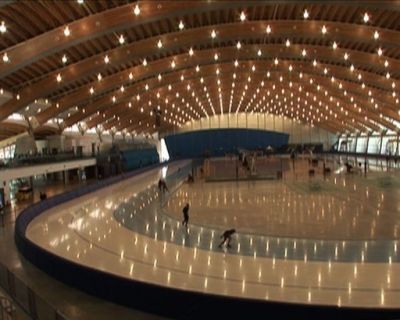Olympics/Preview: Mother Nature hands Vancouver new headache

Aggrieved protesters, the biting global recession and Mother Nature's unpredictability are all giving Winter Olympics organisers headaches, two weeks out from the 2010 Games.
About 2,500 athletes from more than 80 nations will take part in the February 12-28 Olympics, the second winter edition to be staged in Canada.
But despite the high-end exposure of the event, organisers have been forced to confront a series of problems - the latest of which is a worrying lack of snow.
Vancouver has seen unseasonably warm temperatures of up to 14 degrees Celsius this month, while rain has replaced snow, courtesy of the El Nino climactic phenomenon.
Cypress Mountain, the venue for snowboard and freestyle, had to be closed to the public three weeks ago to allow ground staff to preserve the competition areas.
"They're experts in their field and are putting everything they have into this. I know they'll do us proud when the Games open," said British Columbia Premier Gordon Campbell, who took a helicopter over the area this week.
"We also saw impressive amounts of snow at the higher elevations, which the team is carefully moving into place. It's all coming together nicely, despite the recent temperate conditions."
Vancouver residents are enjoying the relatively balmy temperatures.
"Never in Olympic history has a host city with such a mild climate hosted the Winter Games," said Rene Heroux, of the Canadian meteorological office. "It's like Paris being a host city."
Cypress is at a much lower elevation than Whistler, 125km away to the north and where the blue-riband skiing events will be staged.
In Whistler, there is snow aplenty.
"Four metres fell in November," said a spokesman for VANOC, the organising committee.
Weather-watching apart, there are still sceptics who doubt the benefits of the Games, a campaign made more daunting by the memory of the desperate financial legacy left by the 1976 Montreal summer Olympics.
The city's estimated 1.5 billion US dollar debt from staging the event took 30 years to clear.
It has cost Vancouver around 730 million dollars to stage the 2010 Olympics while the security budget, pegged at 175 million Canadian dollars in the bid, has snowballed to around the one-billion mark.
However, many observers see plenty of benefits in staging an Olympics in 2010 despite the dismal economic conditions.
"If someone had asked me a year ago if the global recession would have a big impact, I would have said yes," said Edward Mansfield of PricewaterhouseCoopers, who authored one of the Games reports.
"Now I'm not so sure. I think the effects of the (dour) economy will be much less as it seems to be turning around now."
There is also optimism for bumper performances in competition.
Having staged the 1976 Summer Olympics and 1988 Winter Olympics, Canada has never won a gold medal on homeground and will be looking at its highly-regarded men's ice hockey team to end that drought.
In figure skating, Russia's Yevgeny Plushenko, having come out of retirement, looks to defend his gold from Turin in 2006.
The women's skating competition is poised for an all-Asian tussle with Korean world champion Kim Yu-Na facing up to the two-pronged Japanese challenge of Mao Asada and Miki Ando.
Up in Whistler, meanwhile, highly-fancied Americans Bode Miller and Lindsey Vonn will take on the traditional European threat.
dj/thw10
Subscribe to Independent Premium to bookmark this article
Want to bookmark your favourite articles and stories to read or reference later? Start your Independent Premium subscription today.

Join our commenting forum
Join thought-provoking conversations, follow other Independent readers and see their replies